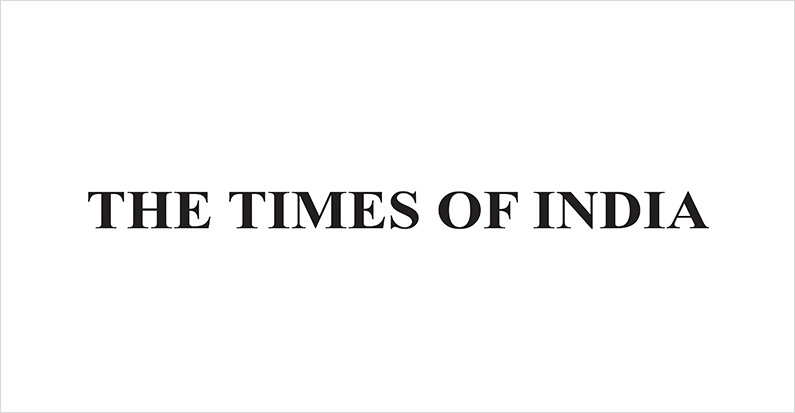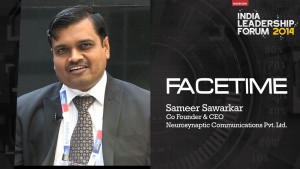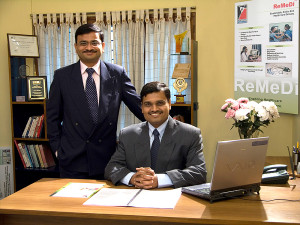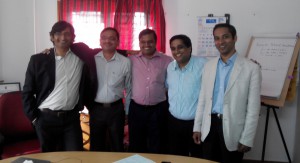MUMBAI: India desperately needs a holistic care system that is universally accessible and effectively reduces out of pocket expenditure,” declared Dr. H. Sudarshan Ballal, Chairman, Manipal Health Enterprises.
Dr. Ballal was addressing a fair number of students, doctors and researchers at the conclave on ‘Affordable Healthcare — Building India’s Future Health Economy’, jointly organized by the Centre for Corporate Governance and Citizenship (CCGC) and the Centre for Public Policy (CPP) at IIM Bangalore, along with SustainabilityNext, an e-magazine which provides relevant content from practitioners and thought leaders, on Saturday (Feb 18).
“Even though, India is a developing nation we have diseases of both the developed and developing countries. We have not yet conquered communicable diseases like malaria, TB, H1N1, among others, and we are also hit by lifestyle diseases like diabetes, hypertension and heart diseases in a big way,” Dr. Ballal said, emphasising that India’s challenge was not bringing modern healthcare to the country, but in making it affordable and accessible to the majority of its citizens. “Just as our economic reforms have not touched the common man the healthcare boom has also failed to touch the common man and this is a dangerous social trend needs to be changed,” he remarked.
Although the doctor with 40 years of experience behind him drew a dismal picture of the burden faced by the country because of unaffordable and inaccessible healthcare, he held out hope. “We must invest in preventive and primary healthcare, we must have policies that promote wellness rather than treat illness, we must incentivize rural healthcare and bring in universal insurance coverage, we must reduce the cost of healthcare by innovation and local technology by levying less duty, we must use the PPP model especially in tertiary and quaternary care and we must promote CSR in healthcare,” he said.
Dr. Ballal’s keynote was followed by the book launch of ‘Do we Care?’, authored by Dr. K Sujatha Rao, Former Union Secretary, Ministry of Health and Family Welfare, Govt. of India. Dr. Sujatha Rao also took questions from the audience on the roadblocks to affordable healthcare and its execution in India, drawing examples from her experience as a policy maker and a medical professional.
The conclave featured two sessions moderated by Dr. Arnab Mukherji, Chairperson, Centre for Public Policy, IIM-B. The first panel discussed ‘India’s future policy direction on affordable healthcare’ with Dr Sujatha Rao; Dr, Vijendra Prakash, GM, The Himalaya Drug Company, and Dr. Govinda Rao, Emeritus Professor at the National Institute of Public Finance and Policy Advisor to Deloitte Touche Tohmatsu as panelists while the second panel discussed ‘Affordability through smart health financing and health systems’, with Dr. Somil Nagpal, Senior Health Specialist, World Bank, Phnom Penh, Cambodia, and Dr. Sujatha Rao as panelists.
The session on ‘Impact funding in affordable healthcare’ featured Naga Prakasam, Mentor at NSRCEL, IIMB, Investor, Acumen Fund and Member, Indian Angel Network; Paul Belknap, Head, Healthcare Initiative, Villgro; Karuna Jain, Associate Director, Strategic Initiatives and Sameer Sawarkar, CEO, Neurosynaptic Communications Pvt. Ltd.. The session was moderated by Anil Misquith, Executive Director, Strategic initiatives, Samhita Social ventures & Senior Advisor – Villgro.
The afternoon session saw an open house where young entrepreneurs presented their healthcare startups that showcased different technology trends and their innovative solutions.
The conclave facilitated conversations among various stakeholders so that the pain points of affordable healthcare are addressed and better linkages built, thereby offering immense opportunities for meeting the healthcare demands of the poor. The experts who addressed the participants opined that the affordable healthcare segment offered vast prospects for investors and start-ups while offering career opportunities to professionals.
The conclave’s sharp focus was on solutions, influencing policy, stoking innovations and building a robust ecosystem involving all stakeholders in this space in India. The core emphasis was on the start-up ecosystem and impact funding.
“The strong post-conclave outcome and impact of the conclave will be maximized and shared with the relevant ecosystem,” said Manoj Chakravarti, Chief Operations Officer, Centre for Corporate Governance and Citizenship, IIM Bangalore, and organizer of the conclave.
“The conclave will facilitate at least ten linkages between NGOs, start-ups, investors; bring out a white paper by a research fellow on affordable healthcare based on the discussions of the conclave, and publish highlights in SustainabilityNext and post it on LinkedIn, Facebook and Twitter to push the debate into the public space,” said Benedict Paramanand, Editor, SustainabilityNext and organizer of the conclave.
Source: www.timesofindia.indiatimes.com




